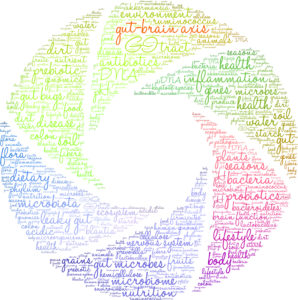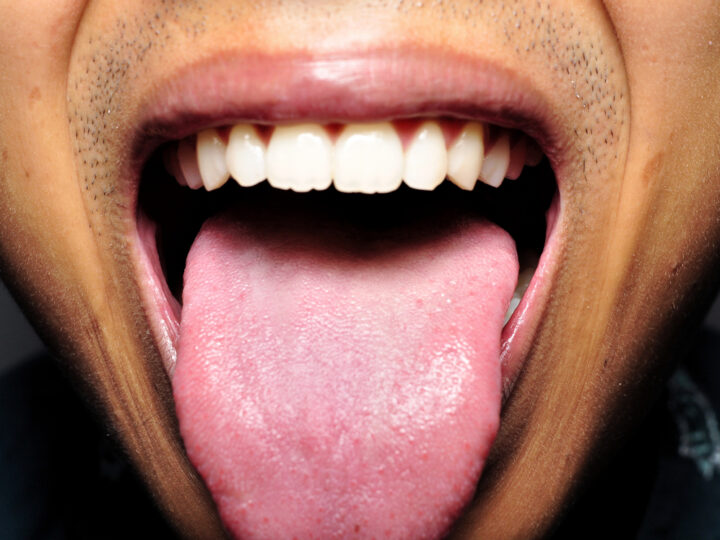IMPROVE GUT HEALTH
Naturally, With TCM

It has long been believed by Eastern medicine that there is a real connection between the gut and the rest of the body’s organs, but recent research suggests that certain bacteria found in the gut can affect one’s mental state, leading to mood, cognition and behavioral issues as well.
What Eastern medicine has known for millennia; Western medicine is just getting on board with. The connection between our gut and our brain is real, and doctors and researchers are even going so far as to employ a new term for the gut: the second brain.
An upset gut can trigger changes in our emotional state, sending signals to our brain that cause emotional and neurological symptoms such as anxiety, depression and mood swings. The gut and the brain are in constant communication. But what is the “gut” exactly?
Definition of Gut Health
 Well, in Western medicine, it refers to the gastrointestinal system as a whole: from the throat all the way down to the rectum. Essentially, it is where food and drink enter and leave your body, and every other involved organ in between.
Well, in Western medicine, it refers to the gastrointestinal system as a whole: from the throat all the way down to the rectum. Essentially, it is where food and drink enter and leave your body, and every other involved organ in between.
However, the Eastern conception of the gut is a bit different. Traditional Chinese medicine refers to the gut as the Spleen and Stomach. The body isn’t viewed as separate parts, rather the whole is considered. Everything is connected, so if the gut is healthy, that tends to open the road to complete and balanced health overall.
Chinese Herbs for Specific Digestive Ailments
TCM has recognized specific herbs that aid in the working of specific digestive organs and processes, primarily the Stomach/Spleen, the Liver/Gall Bladder, and the Small/Large Intestines.
Stomach/Spleen
 When we take in food, the stomach ‘ripens’ it by breaking it down into its useful (‘pure’) and waste (‘impure’) components. The useful parts are directed upwards to the spleen, where they are transformed into the nutrients, energy (Qi), blood and fluids the body needs, while the wastes are directed first to the small and then large intestine for excretion. Any disruption in this process can be attributed to disharmony in the stomach, spleen, or both, leading to such ailments as indigestion, nausea, burping, bloating, constipation, abdominal pain and loose bowel movements.
When we take in food, the stomach ‘ripens’ it by breaking it down into its useful (‘pure’) and waste (‘impure’) components. The useful parts are directed upwards to the spleen, where they are transformed into the nutrients, energy (Qi), blood and fluids the body needs, while the wastes are directed first to the small and then large intestine for excretion. Any disruption in this process can be attributed to disharmony in the stomach, spleen, or both, leading to such ailments as indigestion, nausea, burping, bloating, constipation, abdominal pain and loose bowel movements.
These common issues are routinely treated with digestive tonic herbs such as Chinese Yam, Cardamom, Atractylodes and Codonopsis. These work together to balance stomach and spleen functions to improve the breakdown of food, uptake of nutrients and Qi, and elimination of wastes. Other Chinese herbs that help to regulate this movement and restore the flow of Qi, are Magnolia Bark, Evodia and Pinellia.
Liver/Gall Bladder
 The liver is attributed with governing the smooth flow of Qi and blood throughout the body. Healthy liver function is crucial to the digestive functions of the spleen and stomach. Therefore, any issues that compromise the liver may have adverse effects for the upper digestive tract, resulting in symptoms such as indigestion. Also, because the gall bladder is charged with the transportation of bile, any imbalances or disharmony going on will affect the small intestine, which needs bile to perform its role.
The liver is attributed with governing the smooth flow of Qi and blood throughout the body. Healthy liver function is crucial to the digestive functions of the spleen and stomach. Therefore, any issues that compromise the liver may have adverse effects for the upper digestive tract, resulting in symptoms such as indigestion. Also, because the gall bladder is charged with the transportation of bile, any imbalances or disharmony going on will affect the small intestine, which needs bile to perform its role.
Chinese liver and gall bladder tonics that help regulate the flow of blood and Qi, and stimulate the production of bile are Dandelion, Bupleurum and Chen Pi (Tangerine peel).
Small/Large Intestines
 The final phase of the digestive process is the elimination of wastes and toxins from the body. If these organs are not in balance, bowel problems such as constipation, diarrhea, abdominal pain and flatulence are common. Also, if there is too much heat in your body’s system, your intestinal fluids may be dried up, resulting in constipation. That’s why drinking water everyday is so important. Conversely, too much fluid in the body is a sign of excess Damp, and often happens when liver function is sluggish, and loose bowel movements are common.
The final phase of the digestive process is the elimination of wastes and toxins from the body. If these organs are not in balance, bowel problems such as constipation, diarrhea, abdominal pain and flatulence are common. Also, if there is too much heat in your body’s system, your intestinal fluids may be dried up, resulting in constipation. That’s why drinking water everyday is so important. Conversely, too much fluid in the body is a sign of excess Damp, and often happens when liver function is sluggish, and loose bowel movements are common.
Chinese herbs that are used to correct these conditions have a cooling and lubricating effect on the intestinal organs and have traditionally been used to promote healthy bowel movements. Rhubarb, Rehmannia and Tricosanthes help with this.
Other Chinese herbs that are good for your overall digestive system is Ji Nei Jin, which is a form of chicken gizzard, and taken to promote digestion. When you feel that, after a heavy meal, your food is just sitting in your belly, this herb is good to take as a supplement. Also, Shan Zha is a hawthorn berry. With its sweet and sour taste, its most often drunk as a tea, and is good for helping to digest fatty foods and meats.
If you’ve been suffering with digestive health issues for a while and want more help, consider setting up a virtual consultation with one of our Eastern medicine experts.
Comments (0)
Leave a reply
You must be logged in to post a comment.




